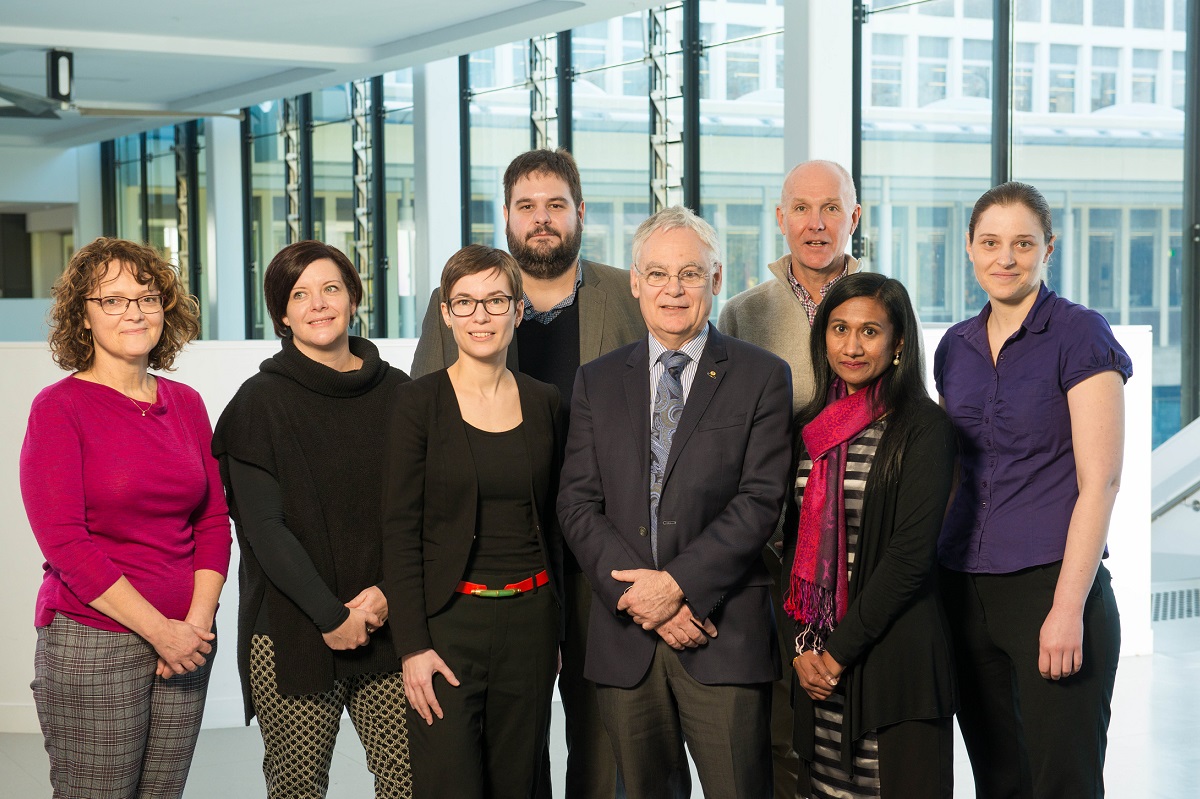
From helping families to addressing borderline personality disorders to the perils of personality politics, a new $100,000 impact seed grants initiative by Flinders University for its early researchers will support novel and emerging research.
Selected from a pool of 76 applications, the ten successful recipients in the inaugural 2018 round were announced at an event on 6 July 2018 at Flinders University, which was attended by donors, senior University staff members and grant recipients.
The early-career researchers will receive $10,000 each to commence their cutting-edge projects and help develop their research careers. Together with enabling valuable research, the grants can fuel momentum in the selected study areas, or lead to future larger projects with the capacity to attract significant grants from traditional funding agencies.
Professor Robert Saint AM, Deputy Vice-Chancellor (Research) at Flinders University, presented at the event and said the seed funding initiative is important to empower less experienced researchers.
“It can be a challenge for researchers at the early stage of their careers, who don’t have an extensive track record, to attract support for their activities – but that doesn’t mean their research is any less worthy than that undertaken by their longer standing colleagues.
“Our Impact Seed Funding initiative aims to give our early career researchers the strong start they need to pursue research that will make a difference to how we live, our wellbeing, and the environment around us,” he said.
Callista Thillou, Executive Director Communications, Marketing and Engagement, acknowledged the strong support of Flinders University’s valued donors in enabling its emerging researchers to progress their innovative ideas.
“We thank our many supporters for their generosity – their backing is helping our researchers to make a difference,” she said.
Tragically, each year 50 infants in Australia are diagnosed with acute myeloid leukaemia, a form of blood cancer. While therapies to treat this cancer have improved, we still don’t know what initiates it. Based at Flinders Centre for Innovation in Cancer, Early Career Researcher Dr Vanessa Conn has identified genetic molecules which, when present at high levels, cause changes to the DNA that drives this leukaemia.
“The Impact Seed Funding Grant will fund my pilot study to investigate whether these genetic molecules can be detected in blood,” said Dr Conn. “I hope this will lead to the earliest detection of at-risk patients and possibly new treatment options so that no child has to suffer from this blood cancer.”
Recipients of the 2018 Impact Seed Funding for Early Career Researchers:
- Dr Catherine Attard will use genomic data to address the conservation of blue whales.
- Dr Alice Clement will investigate the evolution of the nervous system and geographic distribution of Devonian lungfishes.
- Dr Vanessa Conn will use NanoString technology in her research to quantify specific RNA in infants with Acute Myeloid Leukaemia.
- Dr Esther Erlings will study the outcomes of children’s competency from family mediation.
- Dr Oren Griffiths will research covert attention in human learning.
- Dr Linlin Ma will investigate the use of gold nanoparticles in the imaging and treatment of colorectal cancer.
- Dr Deidre Morgan will measure how people with advancing disease are adapting to functional decline.
- Dr Lua Perimal- Lewis will focus her project on empowering caregivers of people who suffer from mild mental impairment or early-stage dementia.
- Dr Rodrigo Praino will research the impact of non-traditional approaches on voting decision-making in modern politics.
- Dr David Smith will focus his research on psychological treatment for people with borderline personality disorder.

